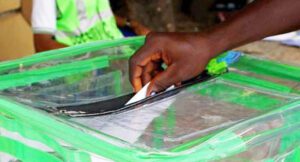Drug Abuse: Worsening profile threatens Nigeria’s socio-economic growth trajectory
Pervasiveness of drug abuse in Nigeria has grown to a height where the scorching impacts may leave the Country with unsavoury narratives if not promptly checked appropriately. The National Drug Law Enforcement Agency (NDLEA) recently, mentioned that no less than 29.4 million Nigerians aged between 15 and 64 years abuse psychoactive substances and other dangerous drugs. At a ceremony to mark this year’s United Nations international day against drug abuse and illicit trafficking in Awka, the Anambra State Commandant of NDLEA, Mrs. Florence Ezeonye, observed the worsening state of the phenomenon, mentioning that one in every four drug user is a female.
“The truth on ground indicates that our society needs to do more in the area of creating awareness of the damaging effects of drug abuse on human health. The drug use and health survey of 2018 captured that 14.4 per cent of the country’s drug use prevalence is almost three times the global average of 5.6 per cent. What is more disturbing is that the drug abuse cuts across all ages, gender, socio-economic status and regions.
“From the survey, 14.3million Nigerians aged 15-64 years use psychoactive substances such as alcohol, caffeine, nicotine and heroine, while 10.6 million abuse cannabis. Also, 4.6million others abuse pharmaceutical opioids such as codeine, tramadol, methamphetamine and morphine, among others. It is worrisome to know that drug use was common among those aged 25-39years, the age of initiation for heroin was 22 years, while the age of cannabis sativa was 19 years. Notably these age groups comprise of young people who are either in secondary or tertiary institutions, or are on the cusp of graduation. To simplify the report of the survey, young people are overwhelmingly the majority of drug abusers in Nigeria,” she had said.
“Most people when faced with difficult situations as we have now, resort to drug use and abuse to apparently overcome their challenges without knowing the end result of their actions. There is, therefore, the need for stakeholders at all levels, (local, state and federal government, ministries, department and agencies, traditional and religious institutions, schools as well as citizens to deliberately get involved in this anti-drug campaign to rid our society of drug abuse and illicit trafficking. The consequences of drug abuse is a reflection of what we see in our world today. Increase in violent crimes, such as kidnapping, armed banditry, rape, arson, child and human trafficking, terrorism among others.
“Drug abuse and illicit drug trafficking is a global problem and Nigeria couldn’t have been insulated from the scourge. This was why the National drug law enforcement agency NDLEA was established in 1989 and charged with the responsibility of enforcing laws against the cultivation, processing, sale, trafficking, use of narcotics and psychotropic substances and also investigate persons suspected to be dealing in drugs and drug related in its effort at reducing the use, abuse and trafficking of illicit drugs.
“It is a fact that youths are the building blocks of every developed and developing nation and anything that affects the youth population invariably affects the nation. The youth constitute the work force, so the stronger the youth population, the stronger the socio-economic prowess of any country. One, then wonders what becomes the future of Nigeria with about 70 per cent of her youth population ravaged by drugs.
“In view of this, I appeal to the State Government through the Commissioner for Education to mandate all secondary schools to establish War Against Drug Abuse, WADA, clubs to serve as the focal point through which NDLEA would carry out sensitisation and awareness campaigns, trainings, seminars and workshops for students. We must all be dedicated to this course to catch them young and reduce the scourge to the barest minimum,” she submitted.
Where about 30 million Nigerians who are in their productive age between 25-60, are on record to be abusers of drug, threat against health and humanitarian profile of the country is nigh in sight. The metabiotic tendencies that such situation pose to the well being of cohabitation transcend the inference that may be drawn on the surface. Such impacts as health and mental challenges, keenly associated with drug abuse, are threats to not only the socio-economic fabrics of the country, but also constitute a wave of disturbance against peaceful coexistence.
The burden of a population largely having a substantial percentage of its productive folks unhealthy, is a challenge that poses threats of metabiotic forces. The impacts of the situation are wrong forces of disturbances which may have the socio-economic fabrics threatened by deficiencies from unintelligible postures. The reactions of drug abuse have been known to bear negative impacts, which from all perspectives, are unfavourable to appreciable growth. The linking force between proliferation of hard drugs and it’s abuse, vis-a-vis crime rate have borne strong cords of effect relations. Hence, the fact that crime rate has surged so high as the abuse of drugs pervades the country, has remained justifiable by the records of studies relating the escalation of criminal tendencies with drug abuse.
It is pertinent to note that Nigeria is at a time when her population should serve at the height of optimum productivity to drive the desideratum of thriving towards sustainable development. Where drug-abuse-related challenges keep soaring high with their strings of deformities, achieving such is threatened. It is time the Government work firmly with the brilliance of network of strategies and measures galvanised to sanitise and reorient the society from the syndrome of drug abuse.
It is worrisome that the syndrome tends to be eating deep into the fabrics of the country, as more age groups including teenagers and even pupils in primary and secondary schools are increasingly been introduced into the sordid act, just as more women are delving into same. The work before the Government is largely demanding, while other societal institutions including faith based organisations, Non governmental organisations, civil society organisations, socio-cultural organisations, the education system, among others, would have to strongly push forth campaigns against drug abuse – a syndrome, which impacts, bear tendencies to dislodge the society from peaceful coexistence, brewing confusing strings against the trajectory of growth and humanitarian peace.




